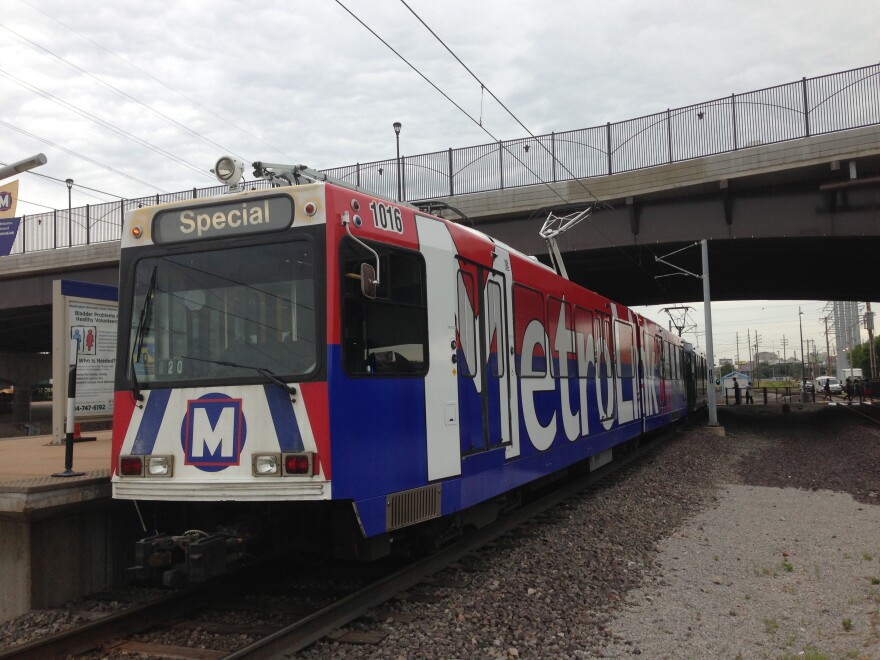Metro Transit is disputing a recent study that suggests its operations in the St. Louis area are financially unsustainable.
The study, Mass Transit Sustainability in the Saint Louis Region, was published by Iowa State University’s Institute for Transportation. It reports that Metro’s operating costs have increased due to higher wages and benefits and the transit agency will be unable to meet its debt obligations by 2021.
Metro's issue with the study lies with its financial projections that are based on recent operations and funding levels (2004-2013). “To say that mass transit is not sustainable, is to assume the service levels, revenue sources and ridership operate along a consistent continuum over time and that’s just incorrect,” said Metro’s Chief of Planning and System Development Jessica Mefford-Miller.
The report's methodology states it "aims to create a forecast of estimated activity over the next years if no changes are made to the system."
In doing so, it examines St. Louis' system, alongside the Chicago Regional Transportation Authority (Metra). The report points out the portion of Metra's funding derived from passenger fares, also called "fare box recovery," is significantly greater than Metro's: light rail operations in Chicago paid for 47.5 percent of its costs from ticket fares compared to MetroLink's 27.2 percent. Similarly public buses in Chicago earned 42.9 percent of their operating costs from the fare box; Metro buses picked up 20.8 percent.
Despite the advantages of Chicago's significantly larger Metra system, which operates within far denser urban population, the report suggests that all public transit systems in the U.S. would benefit by allowing more private-sector enterprises to provide services, especially along busy commuter bus routes.
“The public transit monopoly, if you will, being the only one allowed to provide bus service along routes during peak times should be looked at and reviewed." said the report's principal investigator, Prof. Ray Mundy, who directs UMSL’s Center for Transportation Studies.
"Perhaps we want to allow some competition in different kinds of services to provide peak time services,” he said.
Mefford-Miller said she was disappointed in the methodology of the report that contains "glaring omissions." It doesn't include unique factors that occurred during the time period studied, she said, most importantly MetroLink's Blue Line expansion in 2006, service reductions in 2009, and its restructured debt management strategy.
“I have a hard time understanding where they’re getting their information about things like debt management strategies, but I can tell you that Metro will have sufficient revenue to cover our debt by 2021," she said.
The report was sponsored in part by the Federal Highway Administration and includes a quality assurance statement that reads "(FHWA) provides high-quality information to serve government, industry, and the public in a manner that promotes public understanding. Standards and policies are used to ensure and maximize the quality, objectivity, utility, and integrity of its information. The FHWA periodically reviews quality issues and adjusts its programs and processes to ensure continuous quality improvement."



